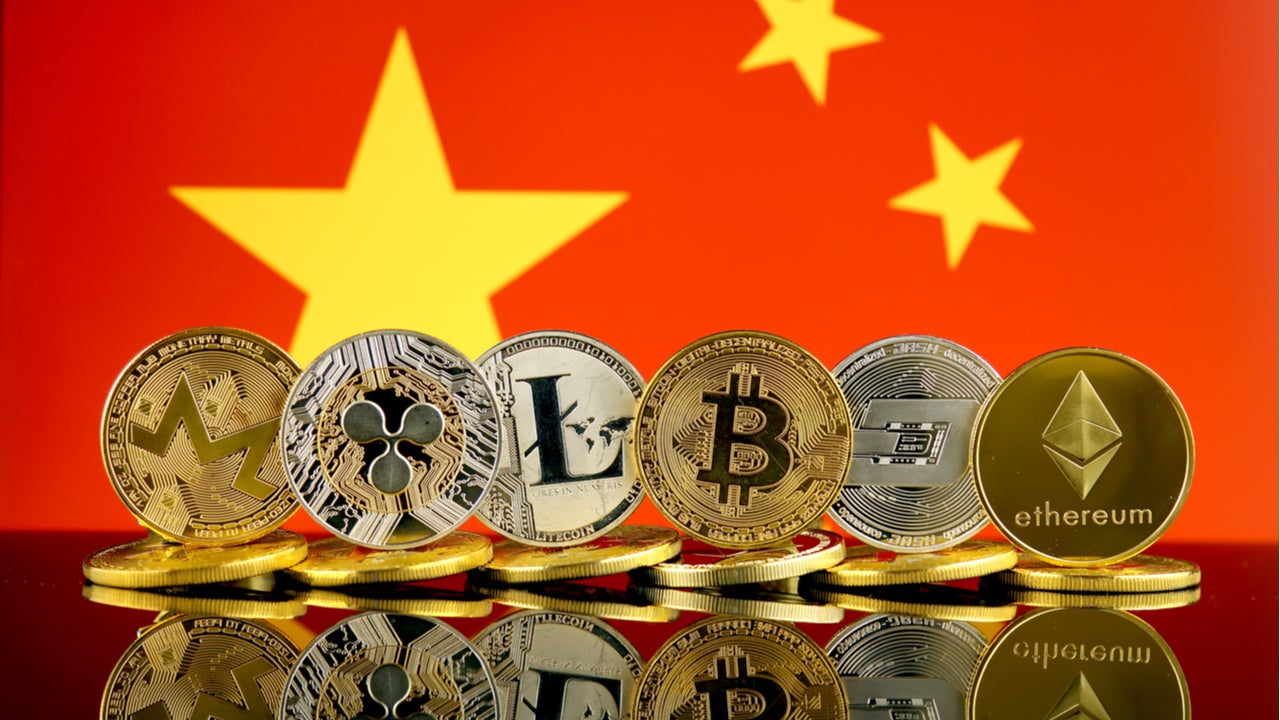
The People’s Bank of China (PBOC) has ordered four state-owned banks and the leading Ant Group-backed mobile payment app Alipay to cut off all transactions linked to bitcoin and other cryptocurrencies as Beijing continues its crackdown.
The Industrial and Commercial Bank of China (ICBC), Agricultural Bank of China, China Construction Bank and the Postal Savings Bank of China were among the financial companies that attended a regulatory discussion organised by China’s central bank on Monday.

Access deeper industry intelligence
Experience unmatched clarity with a single platform that combines unique data, AI, and human expertise.
Other participants included the Fujian-based Industrial Bank and Alipay, a subsidiary of the fintech giant Ant Group. Together with WeChat Pay, owned by Tencent, Alipay accounts for over 90% of China’s mobile payments market.
The statement urged banks and payment firms to thoroughly check client accounts, identifying those involved in cryptocurrency transactions and promptly cut their payment channels.
“Cryptocurrency transactions and speculative activities have disrupted the normal economic and financial order,” the PBOC said in a statement. “They increase the risks of crimes such as illegal cross-border transfers of assets and money laundering, which severely infringe upon the property safety of the general public.”
Alipay said in a separate statement that it would set up a monitoring system to identify cryptocurrency-related transactions, and any merchants who engage in such activities will be banned from the platform.

US Tariffs are shifting - will you react or anticipate?
Don’t let policy changes catch you off guard. Stay proactive with real-time data and expert analysis.
By GlobalDataAfter the PBOC’s announcement, the value of bitcoin hit a two-week low and ether tumbled to more than a five-week low. On Tuesday, prices of major cryptocurrencies stabilised.
China vs cryptocurrency
Recently, China has launched an aggressive plan to crackdown on digital currencies. Last month, the National Internet Finance Association of China, the China Banking Association and the Payment and Clearing Association of China posted a joint statement that explicitly warned against the “hype and dangers of cryptocurrency.” The announcement was published by the PBOC and hinted that state-owned banks would start implementing regulations to halt transactions made with virtual currencies.
At a national meeting of the State Council’s Financial Stability and Development Committee last month, the issue of cryptocurrency was also brought up. A committee document specifically called for a “crackdown on bitcoin mining and trading behaviour.”
Shortly after, China closed its major bitcoin mining regions in inner Mongolia, Xinjiang and Yunnan. This week, miners in the central Chinese province of Sichuan were told to halt their activities immediately.
China’s aggressive pushback against cryptocurrencies has caused a frenzy in the market. As the country had accounted for as much as 70% of the global cryptocurrency supply, many miners have been forced to relocate their activities to other countries.
Stephen Kelso, head of markets at ITI Capital explains that the recent slump in bitcoin’s turbulent price volatility is likely due to the compound impact of reduced hash-rate as Chinese miners emigrated to Kazakhstan, Texas and other low-cost electricity regions in addition to the temporary hiccup “following the Fed’s more hawkish pivot (on inflation) last week.”
“Bitcoin is currently trading approximately one-third below its long-term exponential trend-line, a phenomenon it has only exhibited for circa 20% of the time. Given the market forces and demand for scarce assets to protect wealth, ITI believes this is an attractive buying opportunity for investors.
“This is evidenced by the growing absorption of BTC by larger institutional wallets during sell-offs. China has ‘clamped down on Bitcoin previously in 2013 and 2017 as well as this year. As with similar ‘clampdowns on US mega-tech companies, it has not checked the advance,” he added.






